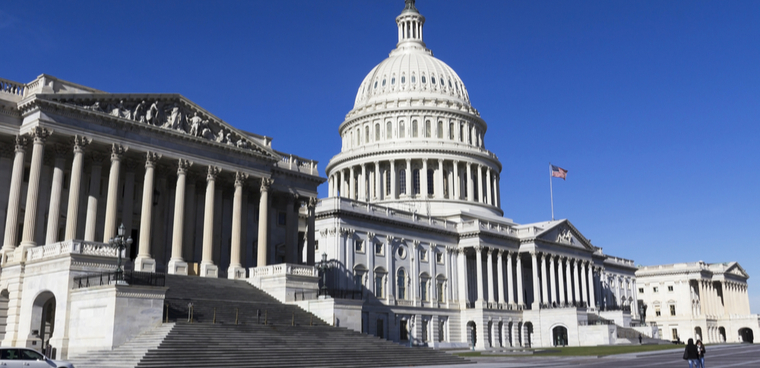House passes stopgap funding bill
The measure would keep the government open past the start of fiscal year 2020 through Nov. 21.

House lawmakers passed a stopgap funding bill to avoid an Oct. 1 government shutdown. The bill, which passed by a vote of 301-123, keeps the government open until Nov. 21.
The move comes as the clock is winding down on the current fiscal year.
The House has passed 10 of 12 appropriations bills. The Senate is moving its bills through committee with floor action in the offing, but with about a week left on the legislative calendar, there isn't time to conference the two sets of bills with differing policies and priorities before the start of the new fiscal year. Additionally, floor action in the Senate is being stalled because of disagreement between Republicans and Democrats over funding for the proposed border wall with Mexico.
The House measure won overwhelming bipartisan support, including from the ranking Republican on the Appropriations Committee.
"It is unfortunate that we are in this situation and have to pass this [continuing resolution] to keep the government open, but we cannot afford an unnecessary and costly shutdown," Rep. Kay Granger (R-Texas) said.
The stopgap funding bill includes a $48 million funding boost to the Office of Personnel Management to prevent a threatened budget shortfall resulting from the transfer of the National Background Investigations Bureau to the Defense Department.
The bill also continues a spending "anomaly" that lets the Census Bureau spend money at an accelerated tempo needed to prevent hiccups in the preparations for the 2020 population enumeration.
The Senate is expected to take up a continuing resolution next week. On Sept. 18, Senate Appropriations vice chair Sen. Patrick Leahy (D-Vt.) called the release of the bill a "welcome development" and said he would "urge the Senate to take up this bill and pass it next week and allow the Committee more time to negotiate bipartisan bills to implement the bipartisan budget agreement reached in July."
NEXT STORY: How VA is disrupting tech delivery






